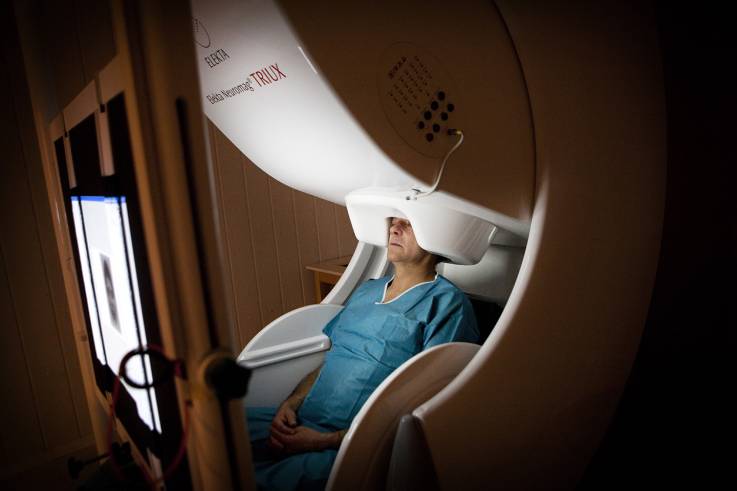College graduates are the most anxious of all, surveys suggest. Last fall, members of Generation Z (those born after 1996) reported the worst mental health of any generation, with 91 percent saying they had felt physical or emotional symptoms associated with stress, such as depression or anxiety, according to the American Psychological Association. Meanwhile, more than 60 percent of college students said they had experienced "overwhelming anxiety" during the previous year, and the number of students who visited campus counseling centers increased by more than 30 percent between the fall of 2009 and 2015.
調查顯示,大學畢業生是最焦慮的人群。據美國心理學會的數據,去年秋天,Z世代(1995-2009年間出生的人)的心理健康狀況是所有一代人中最差的,91%的人表示,他們感到了與壓力相關的身體或情感癥狀,比如抑郁或焦慮。與此同時,超過60%的大學生表示,他們在前一年經歷了“壓倒性的焦慮”,在2009年秋季至2015年期間,去校園咨詢中心的學生人數增加了30%以上。
Many researchers think that the internet and social media have contributed to this trend. "The constant access to news—and the constant warnings on news sites—is incredibly stressful and can create a sense of panic," says Jenny Taitz, a Los Angeles-based author and therapist who specializes in treating anxiety. "There's a shooting here, there is this break-in there, all this information that we have access to puts danger at the forefront of our mind. How can you relax when you have access to all the bad news that's happening right at your fingertips?"
許多研究人員認為,互聯網和社交媒體促成了這一趨勢。“持續不斷地接觸新聞——以及新聞網站上不斷出現的警告——會讓人感到難以置信的壓力,并會產生恐慌感,”擅長治療焦慮的洛杉磯作家兼治療師珍妮·泰茨如是說。“這里發生了槍擊,這里發生了入室盜竊,所有這些我們能接觸到的信息都把危險放在了我們腦海的首位。當你觸手可及所有發生在你指尖的壞消息時,你怎么能放松呢?”

When I mentioned this to LeDoux, he conceded that we live in "a particularly complex time." He added: "Other generations didn't have the internet, which has turned out to be one of the worst things that's ever happened to us as a species."
當我向勒杜提到這一點時,他承認我們生活在一個“特別復雜的時代”。他補充說:“其他幾代人沒有互聯網,這是我們人類經歷過的最糟糕的事情之一。”
Luckily, the spike in anxiety comes at a time of incredible discovery for brain science. Advances in brain imaging and other techniques in recent years have vastly increased our knowledge of the neurological basis of anxiety and led to widespread optimism about the future of the field. Researchers have found that anxiety is a whole-brain phenomenon that involves the activity of complex neuronal circuits. As they proceed in identifying these circuits, they expect to uncover targets for new drugs and treatments. "I think we are on the cusp of a mental health treatment revolution," says Kay Tye, a neuroscientist at the Salk Institute for Biological Sciences. "It's an extremely exciting time."
幸運的是,焦慮的激增發生在腦科學驚人發現的時刻。近年來,腦成像和其他技術的進步極大地增加了我們對焦慮神經基礎的認識,并導致了對該領域未來的普遍樂觀。研究人員發現,焦慮是一種涉及復雜神經回路活動的全腦現象。當他們繼續識別這些回路時,他們希望發現新藥和治療的靶點。“我認為我們正處在心理健康治療革命的風口浪尖,”索爾克生物科學研究所的神經學家凱·泰說。“這是一個非常激動人心的時刻。”
For many of us, the revolution can't come soon enough.
對我們許多人來說,革命來得還不夠快。
譯文由可可原創,僅供學習交流使用,未經許可請勿轉載。












